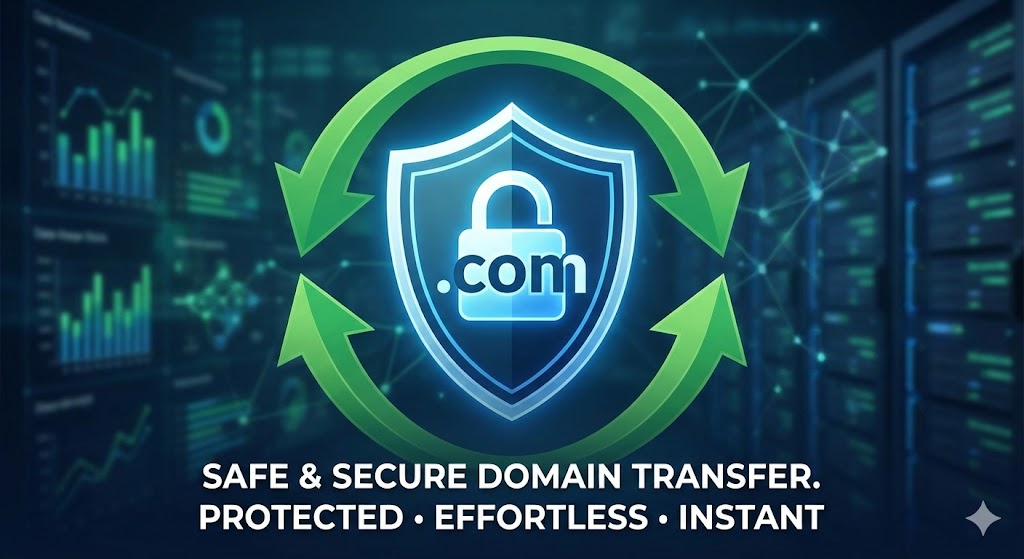
Nigeria, Don’t Get Left Behind: Why Decentralized Domain Hosting Matters
Web3 is reshaping the internet and Nigerian websites can’t afford to be left behind.
From blockchain-powered smart contracts to decentralized domain names, the way we host and manage web platforms is evolving fast. Traditional hosting models are giving way to systems that are more secure, censorship-resistant, and user-owned.
- Nigeria, Don’t Get Left Behind: Why Decentralized Domain Hosting Matters
- What Is Decentralized Domain Hosting?
- Why It Matters for Nigeria
- Here’s how decentralized domain hosting benefits Nigerian creators and developers:
- Core Components of Web3 Hosting
- Best Hosting Options for Nigerian Web3 Developers
- Hybrid Hosting
- Centralized Frontend + Decentralized Backend
- How to Host Your Web3 Website in Nigeria (Step by Step)
- Best Creator Tips for Nigerian Web3 Hosting
- Final Thoughts: Build for the Future
So, what does decentralized domain hosting mean for Nigeria’s growing digital space? Let’s break it down.
What Is Decentralized Domain Hosting?
Decentralized domain hosting uses blockchain technology to register and manage domain names. Instead of relying on a central body like ICANN or GoDaddy, domains are hosted on decentralized networks such as:
These domains can point to content stored on platforms like IPFS (Inter-Planetary File System) or Arweave, ensuring that your website is always live, tamper-proof, and outside the reach of censorship.
Why It Matters for Nigeria
Nigeria is Africa’s biggest internet economy, with thousands of new startups, blogs, and small businesses going online daily. But hosting challenges, from high costs and server downtime to increasing censorship risks, make decentralized hosting an attractive alternative.
Here’s how decentralized domain hosting benefits Nigerian creators and developers:
-
Ownership and Control: You fully own your domain. No renewals. No takedowns.
-
Censorship Resistance: Your site stays online, even under regulatory pressure.
-
Security: Domains are stored on the blockchain, making hijacking or DNS attacks nearly impossible.
-
Lower Long-Term Costs: You pay once and own the domain forever.
Core Components of Web3 Hosting
To host a decentralized Nigerian website, you’ll need to understand the key building blocks:
1. Smart Contracts
These are the backbone of Web3 Dapps (decentralized applications). Built on platforms like Ethereum, smart contracts handle logic, transactions, and governance. Tools:
2. Front-End Development
Your website’s interface is still built using HTML, CSS, and JavaScript, often with frameworks like React + MetaMask = modern Web3 UI. It interacts with the blockchain using libraries like web3.js or Ethers.js.
3. Decentralized Storage
Services like IPFS, Filecoin, or Arweave store your static files (images, videos, HTML). They replace traditional servers and offer better reliability.
4. Blockchain Domains
Register .eth, .crypto, .zil, etc. via ENS or Unstoppable Domains.
5. Optional: Decentralized CDN Layer
Networks like Fleek or Akash Network boost global access speed by distributing your content across decentralized nodes.
Best Hosting Options for Nigerian Web3 Developers
Fully Decentralized Hosting
Every part, smart contracts, frontend, storage, and domain, is hosted on decentralized systems. This is ideal for Dapps, activist blogs, or projects that value independence over convenience.
Hybrid Hosting
Many Nigerian developers start here. For example, your smart contracts and storage might be decentralized, but your frontend is hosted on a central server like Vercel or Netlify.
Centralized Frontend + Decentralized Backend
Perfect for beginners. Host your smart contracts on-chain but use traditional methods for your website’s UI to keep things simple and fast.
| Hosting Type | Description | Ideal For |
|---|---|---|
| Fully Decentralized | Every part hosted on blockchain | Dapps, DeFi tools, activist sites |
| Hybrid Hosting | Smart contracts + IPFS + Web2 frontend | Blogs, brands, content platforms |
| Decentralized Backend | Smart contracts + centralized UI | Beginners or MVP builds |
Top Decentralized Web3 Hosting Tools You Can Use
| Tool | Use | Link |
|---|---|---|
| IPFS | Content storage | ipfs.tech |
| Arweave | Permanent data hosting | arweave.org |
| ENS | .eth domains |
ens.domains |
| Unstoppable Domains | .crypto, .zil, .x domains |
unstoppabledomains.com |
| Fleek | Web3 hosting & CDN | fleek.co |
| Akash | Decentralized cloud/CDN | akash.network |
| Pinata | IPFS pinning service | pinata.cloud |
How to Host Your Web3 Website in Nigeria (Step by Step)
-
Write your smart contracts using Hardhat or Remix
-
Build frontend with React
-
Register and connect your ENS or Unstoppable Domain
-
Optional: Speed up delivery with Akash Network
-
Track uptime with Fleek Analytics.
Best Creator Tips for Nigerian Web3 Hosting
-
Audit smart contracts: security matters. Use MythX.
-
Host redundant copies on IPFS and Arweave.
-
Compress frontend assets for low-bandwidth users.
-
Educate your users: many Nigerians aren’t familiar with MetaMask or Web3 wallets.
-
Know the law: check SEC Nigeria and NDPR rules on crypto and data compliance.
Final Thoughts: Build for the Future
Web3 and decentralized hosting are creating massive opportunities for Nigerian developers, entrepreneurs, and digital creatives. It’s not just about escaping censorship or downtime, it’s about building an internet where you own your presence.
Whether you’re launching:
-
A tech startup in Lagos
-
A fashion brand in Port Harcourt
-
A blog in Abuja
-
A digital agency in Yenagoa
Now is the time to go Web3.
- Take control.
- Own your domain at https://leanna.ng/domains/
- Host without fear.
The future of the Nigerian internet is decentralized and you should be part of it.
Choose Leanna.ng Today!




